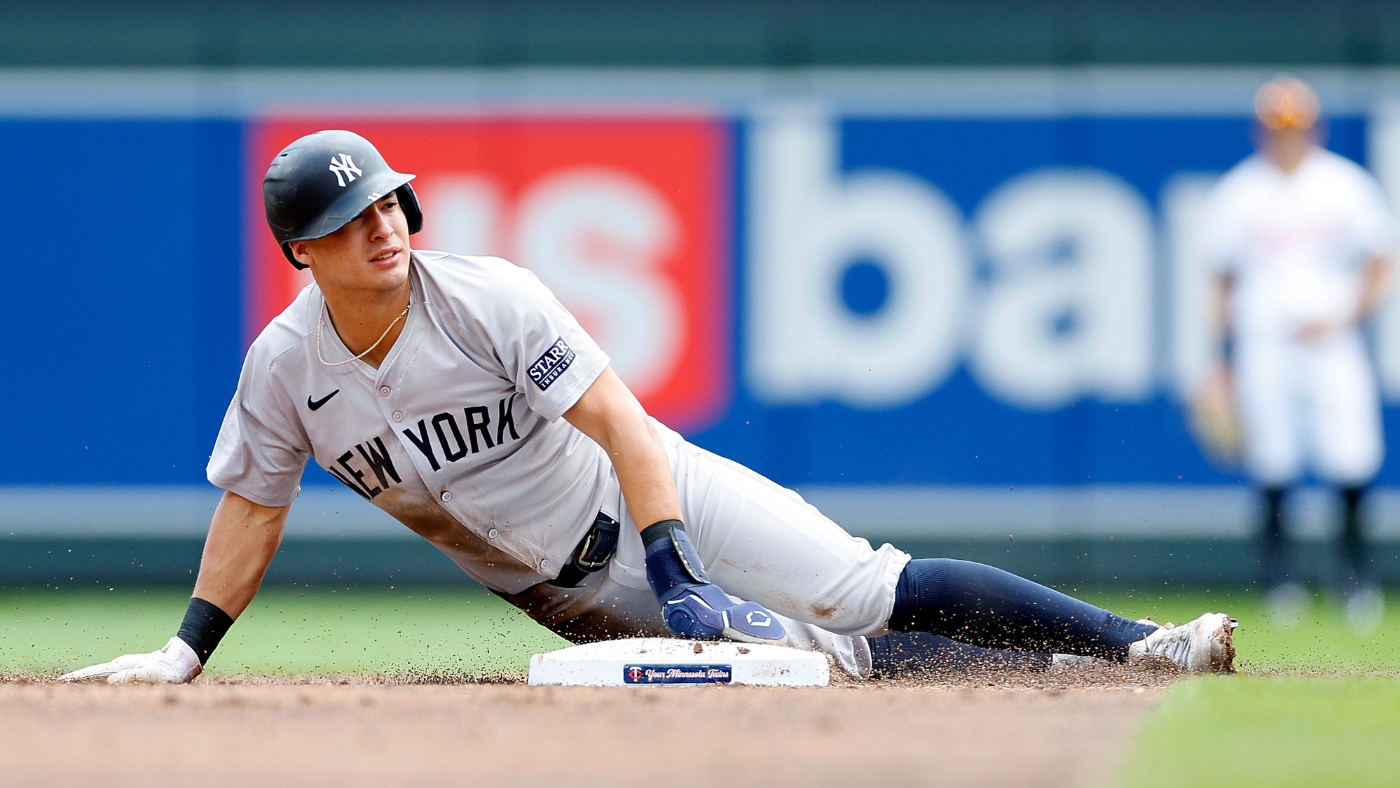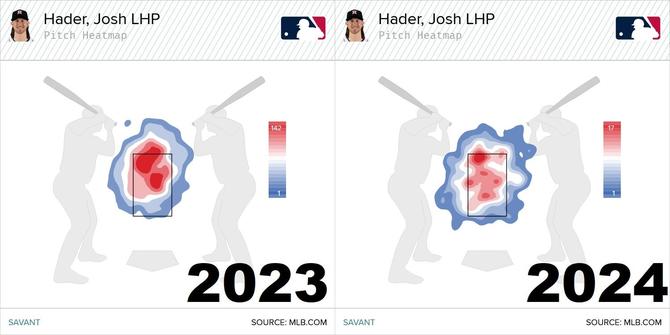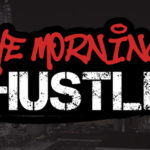MLB trends: Josh Hader’s home runs, Yankees’ slow slog and how Brewers can help Aaron Civale
Written by CBS SPORTS ALL RIGHTS RESERVED on July 10, 2024


The 2024 MLB All-Star break is next week and the trade deadline is not too far behind that. We’re entering the dogs days of summer and contenders are starting to separate themselves from pretenders. Well, kind of. There are still a lot of teams in the mushy middle as we approach the Midsummer Classic. Here now are three MLB trends worth knowing.
Hader’s home run problem
Year 1 of Josh Hader’s five-year, $95 million contract with the Astros has not exactly gone according to plan. He entered Tuesday’s action with a 4.15 ERA in 39 innings, mostly because he was tagged for nine earned runs in his first 9 2/3 innings. Hader has also surrendered eight home runs in those 39 innings, including a walk-off to Christian Vázquez this past Sunday.
Eight home runs in 39 innings gives Hader a 1.85 HR/9 rate. Last year he allowed three homers in 56 1/3 innings (0.48 HR/9), and, from 2021-23, he ran a 0.76 HR/9. When you’re a closer and a high-leverage reliever like Hader, someone who pitches almost exclusively in close games, home runs are a killer. They flip close games in an instant.
“I’m sure if you look at it, last year I was able to execute at the top of the zone a lot more often,” Hader said about this year’s home run problems after surrendering the walk-off to Vázquez (via MLB.com). “I’m in the zone this year, which then gives the hitters a chance to hit the inner-half fastball.”
Hader is a bit unique in that he’s a sinker guy who pitches up in the zone. Back in April, our R.J. Anderson noted Hader was pitching down in the zone more often with his sinker, which is the norm league-wide (sinkers down in the zone, duh) but not the way Hader works. He has to pitch up with his sinker to have success and he’s not doing that in 2024, hence the homers.
Here are Hader’s sinker location heat maps:


The big red splotch means Hader threw a lot of sinkers in the upper third of the strike zone (and above) in 2023. This year, the red is more evenly spread out throughout the strike zone, which is bad for Hader. He needs to elevate that sinker and get hitters to swing under it. Not coincidentally, the average exit velocity on his sinker went from 85.7 mph in 2023 to 90.0 mph in 2024.
Hader indicated his issues are mechanical — “Last year I was able to execute at the top of the zone a lot more often” — rather than an intentional change in approach. He has that sped up herky-jerky delivery and sometimes it can be difficult to keep everything on time and in order. If it were an easy fix, Hader would have done it already. These things can be tricky to fix in-season.
Vázquez’s walk-off homer came on a sinker that was in the bottom half of the strike zone and that is the biggest issue with Hader right now. He’s pitching down in the zone too often with his sinker and the pitch just doesn’t play well there, hence his skyrocketing home run rate. Hader has to pitch up with it. When he does, he’s untouchable. When he doesn’t, he’s homer prone.
Why Civale could benefit from Brewers
Last week, the Brewers jumped the line on the pitching trade market and acquired righty Aaron Civale from the Rays for minor-league infielder Gregory Barrios. The Rays picked up Civale from the Guardians at last summer’s trade deadline and he gave them 27 mostly underwhelming starts: 5.17 ERA (78 ERA+) despite striking out more than 25% of the batters he faced.
Civale’s first start with Milwaukee was a mixed bag. He struck out eight in five innings against the Dodgers, but also surrendered four runs, including three homers. Home runs are part of the Civale experience. He allowed 16 in 87 innings with the Rays this year (1.66 HR/9) and his career home run rate is 1.32 per nine innings. The strikeouts are great, and you have to live with the homers.
In that sense, Civale is the embodiment of modern baseball. He’s got strikeout stuff and it’s really hard to string together three or four hits in an inning to score against him, so you need to hit the ball out of the park to beat him. Civale is home-run prone because he’s an extreme fly-ball pitcher (32.5% grounders in 2024), and that’s where the Brewers could help him.
Milwaukee, simply put, is a superior defensive team to the Rays, especially in the outfield. With the exception of Christian Yelich, whose defense has slipped now that he’s in his 30s, the Brewers have premium athletes all over the outfield: Jackson Chourio, Sal Frelick, Blake Perkins, the recently returned Garrett Mitchell, etc. Those dudes can go get it.
Here are the numbers (MLB ranks in parenthesis):
| Brewers | Rays | |
|---|---|---|
Overall defensive runs saved | +33 (6th) | -16 (24th) |
Overall outs above average | +23 (2nd) | +1 (15th) |
Outfield defensive runs saved | +13 (3rd) | -1 (17th) |
Outfield outs above average | +10 (3rd) | +7 (8th) |
BABIP on fly balls | .078 (1st) | .095 (6th) |
Civale is an extreme fly-ball pitcher — that 32.5% ground ball rate is third lowest among qualified pitchers this year — and he’s now playing in front of a great outfield defense, so it stands to reason he’ll benefit and see his run prevention improve.
There is a potential downside though. American Family Field in Milwaukee is much, much more homer-happy ballpark than Tropicana Field. Statcast’s park factors say the stadium formerly known as Miller Park inflates homers to 114% the league average, fifth highest in baseball. The Trop is exactly league average for homers. It neither inflates them nor suppresses them.
So that’s the trade-off the Brewers are making. Civale is likely to allow more homers with Milwaukee because their ballpark is more friendly to home run hitters, but also the non-homer fly balls Civale generates are much more likely to be converted into outs. There is risk here, no doubt, but putting an extreme fly-ball pitcher in front of a great defensive outfield is sensible.
The painfully slow Yankees
Thing are not going well for the Yankees these days. They started the season 49-21, which was the best record in baseball at the time, then they fell into a 6-16 tailspin heading into Tuesday’s game. Everything is going wrong right now. They’re not pitching well, they’re not hitting well (even Aaron Judge and Juan Soto are slumping), they’re playing sloppy, etc. It’s bad.
One thing the Yankees have not done at any point this year (and really at any point in the last few years) is run the bases well. They are a painfully slow team. The Yankees took a 20-game stolen base drought into Tuesday, their longest since 1964, and they’re not good at all the non-stolen base baserunning stuff (going first-to-third on a single, etc.). The numbers:
| Yankees | MLB average | |
|---|---|---|
Stolen bases | 37 (29th in MLB) | 65 |
Stolen base success rate | 70% (28th in MLB) | 78% |
Sprint speed | 26.6 ft/s (30th in MLB) | 27.0 ft/s |
Home-to-first time | 4.57 seconds (30th in MLB) | 4.47 seconds |
Extra-base taken rate | 36% (30th in MLB) | 42% |
Baserunning value | -10.8 runs (30th in MLB) | 0.0 runs |
With utility man Jon Berti on the injured list, Anthony Volpe is the only speed threat on the Yankees, and he had a .202 on-base percentages in his last 26 games heading into Tuesday. He hasn’t been on base enough to run, plus Volpe spent much of the year hitting leadoff, and the Yankees didn’t want him risking outs on the bases with Soto and Judge coming up.
The Yankees lack any sort of a running game. They don’t steal bases, they don’t go first-to-third on singles, they don’t advance on fly balls or wild pitches/passed balls, nothing like that. Their offense is limited to slugging and they do slug — second in homers and fourth in slugging percentage entering Tuesday — but if you keep them in the park, they have no other way to generate offense.
The post MLB trends: Josh Hader’s home runs, Yankees’ slow slog and how Brewers can help Aaron Civale first appeared on OKC Sports Radio.







